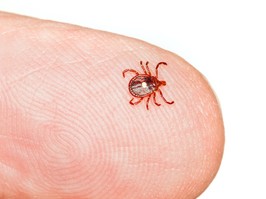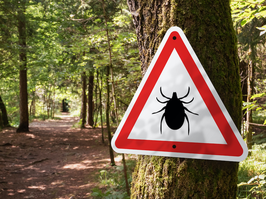powered by:
valneva canada inc.
lyme disease
lyme disease is an infectious disease caused by the bacterium borrelia burgdorferi, which is transmitted to humans through the bite of infected black-legged ticks, commonly known as deer ticks.
symptoms of lyme disease can appear days to months after the tick bite and often include a distinctive "bull's-eye" rash, fever, headache, fatigue, and muscle and joint aches. if left untreated, the infection can spread to the joints, heart, and nervous system.
diagnosis is typically based on symptoms and the possibility of exposure to infected ticks, and can be confirmed with blood tests.
treatment for lyme disease is most effective when started early and usually involves a course of antibiotics. most cases of lyme disease can be treated successfully with a few weeks of antibiotics.
prevention of lyme disease centers around avoiding tick bites, such as using insect repellent, wearing protective clothing, and checking for ticks after spending time in wooded or grassy areas.
advertisement




